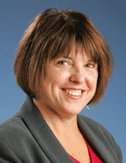
The hand recount of votes cast in 15 of the precincts that voted in the April 3 Anchorage Municipal Election is heading into the home stretch. The initial recount is done, but workers are recounting seven races and one full precinct again.
The Anchorage Municipal Clerk’s Office has completed their initial hand recount of ballots cast in the messy Municipal Election. Barbara Gruenstein is the Municipal Clerk. She’s supervising the hand recount. She says her team finished the count Friday, but found that 7 of the 15 precincts they looked at did not match up, so they are recounting those races again.
“There were seven races where the numbers really did not match the numbers that were in the AcuVote machine, so we’re gonna recount them. And then one precinct, we’re gonna recount the total ballots again, not the races, because the number of ballots exceeds the number of votes cast in the AcuVote – so there’s eight counts all together,” Gruenstein said.
Gruenstein says her team will start on those eight counts at 1:00 p.m. Wednesday at City Hall. Gruenstein supervised the April 3 Municipal Election during which more than half of voting precincts ran out of ballots. Last week the Anchorage Assembly certified the election despite reports of problems with voting machines and of voters being turned away at the poles. In addition, the Assembly chair appointed a retired judge to investigate what went wrong. The investigator’s report is due out by June 28. Gruenstein anticipates her office will present a report on the hand recount to the Assembly on May 22.
Daysha Eaton is a contributor with the Alaska Public Radio Network.
Daysha Eaton holds a B.A. from Evergreen State College, and a M.A. from the University of Southern California. Daysha got her start in radio at Seattle public radio stations, KPLU and KUOW. Before coming to KBBI, she was the News Director at KYUK in Bethel. She has also worked as the Southcentral Reporter for KSKA in Anchorage.
Daysha's work has appeared on NPR's "Morning Edition" and "All Things Considered", PRI's "The World" and "National Native News". She's happy to take assignments, and to get news tips, which are best sent via email.
Daysha became a journalist because she believes in the power of storytelling. Stories connect us and they help us make sense of our world. They shed light on injustice and they comfort us in troubled times. She got into public broadcasting because it seems to fulfill the intention of the 4th Estate and to most effectively apply the freedom of the press granted to us through the Constitution. She feels that public radio has a special way of moving people emotionally through sound, taking them to remote places, introducing them to people they would not otherwise meet and compelling them to think about issues they might ordinarily overlook.




